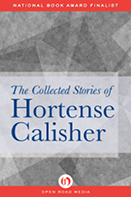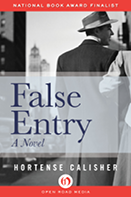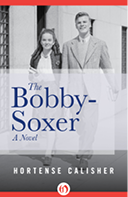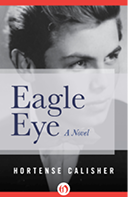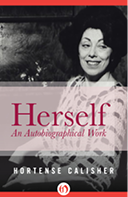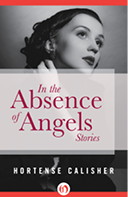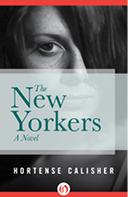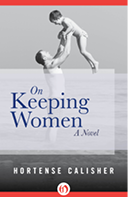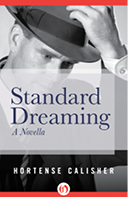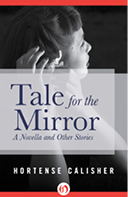Eagle Eye (23 page)
Authors: Hortense Calisher

He woke to the smell of whales. Harbor-gut. He could almost see them though on the waterfront, in from the Narrows on their way to the Kill Van Kull to be etched on ivory. Or beached and gaping, their jellied insides being visited by men in stovepipe hats. There was something very American about them—or about thinking that there was. Mother Russia, Uncle Sam—a dog-man was a citizen of more. Someone coming out of the coffee shop nudged him with a toe. He felt for his wallet—gone of course—he had been followed. He was down in the gutter, dirty, and not ashamed of it.
He felt for his stutter. His most intimate possession. For the moment he felt cleaned out. Time would have to tell whether he had lost it for good. Or another person. Takes two to stutter, doesn’t it, Jasmin said in her teasing bed-voice.
Like tango-ing.
He got up from the curb, feeling his head. On the crown of it, a little cockscomb had risen, a thin ridge to the thumb, full of young tenderness. His ideals, maybe. Seemed as likely he would go back to the office now, as that he wouldn’t. Rolling along the street in his soul-curve, he and the street would have to decide. As he limped along, he could see his early-morning self flitting from store window to window. The purple glasses were gone. His vision was 20–20 now, as the oculist had sworn it would be. He was Batface, had been all along. Bunty to Quentin, Batface to Eagle Eye, one plane ticket would carry them all. He was so hungry-healthy he could eat a whale now, imagine it later.
But down-under and blocks away, the Flying Tiger van must already be rolling onto its platform. Might already be loading, the crew of three gone upstairs with their dolly and embalming-cloths, the driver sitting in the cab, a two-sided metal-man, faithful as a toy. He knew van-handlers; how they liked to be finished at three, home with the feet up to a beer, in a house or a garden often described—hernia at fifty, arthritis at sixty, but afternoons free. How any man might need to make his life visible in the most ordinary way, to allow for the unearthly that must creep in.
In the theatre of the invisible—Buddy now said to him—there is never any want of space.
He stopped in his tracks. Not to hurry, kid. In part, you are now what the dead make
you
say.
The long van had already loaded. Traveling like a behemoth with its mouth open, it had snapped up this last cud. He peered in, and saw it, shrouded. Nobody sick in the back. A good outfit, the Flying Tiger of Newark. He’d chosen it out of the phone book, second try after Cherokee, which had turned out to be more of an airline. Knowing plain enough why the Indian name called to him; why animals kept floating into his head, he couldn’t say. Two by two or alone, taking up what appeared to be their accustomed places. Or else in silent congress, paws uplifted, leaving him to make the analogy. Maybe it was because they were out of time. Or were his luck.
He heard the crew grumbling at the wait. Boss must be soft in the head—a passenger. What kind of freight was that?
One of the crew rubbed two fingers against a thumb, under the speaker’s nose.
No, he’d booked at a price, but without bribes. That had been attended to long since.
He went up to the crew. “Waiting for somebody?” Van-men would talk to anybody except the people in the house they were moving from.
“Yeah, some wook, has to go along with this bundle.”
“A wook?”
Whether they were hewn and musclebound, or shaky non-unioners off the vino for the day, he always felt secretly allied. Shaggy wagoneers, blunt-headed shunters of space, their heavily mantled shoulders sloping to hindquarters where the rut and the dance was, buffalo.
“He means a wack,” one of them said.
“No, he doesn’t,” a second one said, “he means a kook.”
They all three grinned at him.
“That’s me, I guess. The name is Bronstein.”
They scanned him.
“Musta weighed him double.”
“Use him for a tail pipe.”
“Pop him out of the top, like for a Diesel.”
They put him in the cab.
He was glad of it. The vitality of his adventure might surpass anybody’s here, but he didn’t want to go it alone. The Bronsteins were moving again; it was his heritage. Though it was the ports that bothered him, he would settle for the journeys. Abe’s coin had paid for this one, long time a-coming.
Maybe I’m a pioneer, like Babbidge. Maybe I’m a failure, like Betts.
“Where you going, kid?”
“C-California.”
What’s for winter? Summer.
He saw it ahead, beyond Newark, a land of golden roses stiffened to bronze, a tale not quite despised. No one can be a soldier all the time. Not even a soldier. Now and then, I’ll call you all up.
“What you got with you?”
Wrapped like a coffin, or a bomb. Or a birthday-box.
“A p-piano.”
He had his stutter back.
As he skittered along, it sang. The jangle of personality that everybody was, rode along with him—a tinkle of manacle at the wrist, a chain-gang at the anklebone. The song of the first loss, training him. What are we here for, here for, if not to see each others’ lines of force? And see them, see them pitiful. Bunty stood and smiled, and kidded. Quentin beat against doors, and performed. Eagle Eye saw. The postmistresses of Ireland and Wales shook hands-across-the-sea with him. Wander the life-camps of the world, oh freely deferred. Oh perfect fool, you are at the beginning of life. Somewhere the whales still slide by, their spouts perpendicular, American elephants, remembering everything.
We are all going to the lost-and-found, he told them.
Accompanying him in what was like a marriage, Jasmin wept.
Hortense Calisher (1911–2009) was born in New York City. The daughter of a young German-Jewish immigrant mother and a somewhat older Jewish father from Virginia, she graduated from Barnard College in 1932 and worked as a sales clerk before marrying and moving to Nyack, New York, to raise her family. Her first book, a collection of short stories titled
In the Absence of Angels
, appeared in 1951. She went on to publish two dozen more works of fiction and memoir, writing into her nineties. A past president of the American Academy of Arts and Letters and of PEN, the worldwide association of writers, she was a National Book Award finalist three times, won an O. Henry Award for “The Night Club in the Woods” and the 1986 Janet Heidinger Kafka Prize for
The Bobby Soxer
, and was awarded Guggenheim Fellowships in 1952 and 1955.
All rights reserved, including without limitation the right to reproduce this ebook or any portion thereof in any form or by any means, whether electronic or mechanical, now known or hereinafter invented, without the express written permission of the publisher.
This is a work of fiction. Names, characters, places, events, and incidents either are the product of the author’s imagination or are used fictitiously. Any resemblance to actual persons, living or dead, businesses, companies, events, or locales is entirely coincidental.
Copyright © 1973 by Hortense Calisher
Cover design by Kelly Parr
978-1-4804-3897-2
This edition published in 2013 by Open Road Integrated Media, Inc.
345 Hudson Street
New York, NY 10014

